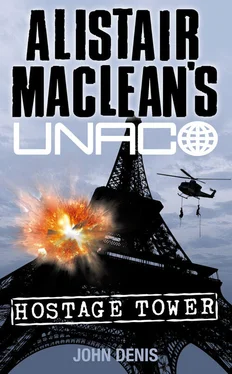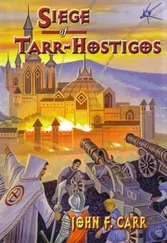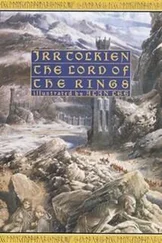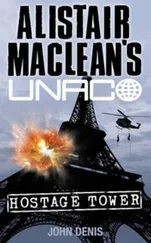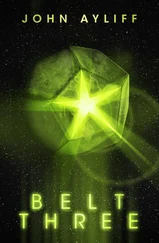The United Nations is bureaucracy run riot, and acronyms proliferate there like hamsters. Few of them are important. One, in a little-frequented part of the UN Building in New York, scarcely rates a second glance. The sign on the office door says: ‘UNACO’. And below that: ‘Malcolm G. Philpott, Director’. And underneath, ‘Sonya Kolchinsky, Assistant Director’.
This acronym is misleadingly innocent, since ‘UNACO’ stands for ‘United Nations Anti-Crime Organization’, and it is very important indeed.
Sonya Kolchinsky picked up the ornate silver tray and carried it carefully across the room to Philpott’s desk. Philpott’s desk, like Philpott, was invariably tidy; there was plenty of space to set down the tray, which she did, again carefully. It bore a small espresso coffee machine, and cups and saucers in delicate china from a full service. Next to the silver sugar bowl and cream jug stood a cut-glass crystal decanter of brandy.
Sonya poured out a cup of coffee, and added a half spoonful of demerara sugar. She stirred the brew and, without asking Philpott, slipped in a touch, measured almost in droplets, of Remy Martin. She stirred the contents again, then topped it up with cream. Philpott, his eyes still glued to a file on his desk, raised the cup to his lips and sipped.
‘Delicious,’ he remarked, absently.
‘I know,’ she said.
He looked up at her, and grinned, a shade selfconsciously. ‘Sorry,’ he muttered. ‘Miles away.’
‘You’re forgiven.’ She inclined her head mockingly. She was of above average height, and statuesquely built. She had a round, slightly pug-nosed face, and lightish-brown hair, cut fairly short with a sweeping fringe, then layered back over her shapely head.
Sonya was in her early forties, Czech-born, but now a naturalized American. She was an expert linguist; she had a degree in molecular physics; and her IQ was a few points higher than the man whom now she faced. She had clear, grey eyes that twinkled at Malcolm Gregory Philpott, enjoying his temporary discomfiture.
She sat in a chair at an angle from the desk, and raised her eyebrows quizzically. ‘The list?’ she enquired.
‘By all means,’ Philpott replied. He placed a finger on his intercom buzzer, and a voice rasped, ‘Director?’
‘The list.’
‘Sir.’
In the large and roomy outer office, a young man in a sober suit with a shaving rash and earnest glasses, picked up a message-pad and started across the deep-piled carpet. He passed a wall-to-wall neon map of the world. In front of the map was a practically wall-to-wall inclined counter, a cross between a library reading room desk and a Dickensian office lectern.
Three technicians of differing nationalities sat at the counter in padded swivel chairs. Each wore a pilot-style headset with a tiny cantilevered microphone hovering a measured inch and a half from his mouth. The three were listening-posts to the world. Occasionally they murmured greetings or commands in any one of more than thirty languages, and made notes on sheets of cartridge-paper pinned to the counter. Every time a new call came in, a red light blinked on the map, indicating its origin.
An exact see-through miniature of the map, measuring no more than six inches by nine, rested on Philpott’s uncluttered desk in a handsome frame. A mellow chime from an alarm system warned him when a new call came up, and the lighting pattern of the map was precisely duplicated, down to merest pinpoints from the most unlikely places.
The young man handed the pad to Sonya, who said, ‘Thank you, Basil,’ and began to study the neatly typed summary of the mid-morning traffic …
Traffic in crime, which was the business of UNACO and its staff. Like Mister Smith, Philpott was fascinated by crime. He was, indeed, fascinated by Mister Smith; and there he had a decided advantage over Smith. For whereas Malcolm Philpott knew a great deal about Smith, and his many aliases and driving obsessions, Smith never even suspected the existence of Philpott or his Department.
Philpott had himself suggested the formation of the top-secret group when he was a research professor in a New England University, heading a section sponsored partly by industry – it was highly technical and advanced research – and partly by the CIA, through the US Government. The Government had fallen for the idea, and had even accepted Philpott’s primary and absolute condition that the organization should come under the aegis of the United Nations, where its services would be placed at the disposal of all member states, and where its sources would not feel inhibited by the taint of American self-interest and militarism.
Philpott had not imagined for a second that the Nixon administration would not merely enthusiastically endorse the project, but also fund the donkey work of setting up the Department. He was allowed to select all his staff, and recruit agents, and had never for an instant regretted his first (and only) choice of Assistant Director.
Sonya Kolchinsky and Philpott shared the conviction that international crime, if properly organized, could threaten subversion and chaos on a scale to rival that of even the most belligerent Eastern Bloc state. They devoted (and sometimes risked) their lives and admittedly well-paid careers to fighting serious crime, and they had earned the respect and admiration of the vast majority of UN member nations, including some in the Eastern Bloc.
For UNACO would tackle crime anywhere, and for any reason, provided the threat to stability was critical, and that Philpott was sure the Depart ment was not being used as a pawn in a power-game. He had known from the start that the Nixon administration would try to subvert UNACO, by planting key personnel in the group. He had annulled that threat years ago and now, under a more malleable and far-sighted President, the Department enjoyed the trust and support of the United States Government and the un-stinting co-operation of the CIA, INTERPOL and the FBI.
In fact, Philpott’s personal relationship with the new President of the United States had opened doors to UNACO in America, and throughout the world, which had previously been closed to Philpott, whatever his credentials or reputation. It was a good time for UNACO. Malcolm G. Philpott was determined to keep it that way.
Easily the most persuasive explanation for his current high standing was his astonishing success. And the most important influence on the UNACO hit rate was, without doubt, Philpott’s ability to recruit international criminals to unmask international crime.
He logically put criminals into two principal categories: those who operated on their own account for their own benefit; and those others – such as terrorists of all kinds – whose activities were directed at Governments, nations and social systems.
There was a third kind – a rare breed of criminal dedicated to anarchy, wedded to the abstract concept of crime as a cleansing force; totally amoral and wanting in any respect for human life.
The second and third categories were Philpott’s targets. He occasionally brought in Governments to help his constant war against international terrorism. But the Napoleons of crime, the monsters, he reserved for himself, asking for help only when he needed it.
And he was winning his battles. For the criminals Philpott chose as his weapons were often the match for those he sought to destroy.
Which was why long since, he had recruited the master-criminals Sabrina Carver and C. W. Whitlock to help him rid the world of Mister Smith.
Sonya scanned the message-pad again, and said, ‘Right – here goes.
‘The diamond trail’s moving again, it seems.
Reports indicate that an estimated two million in smuggled uncuts leaked out to Capetown yesterday. Courier unknown. Action?’
Читать дальше
